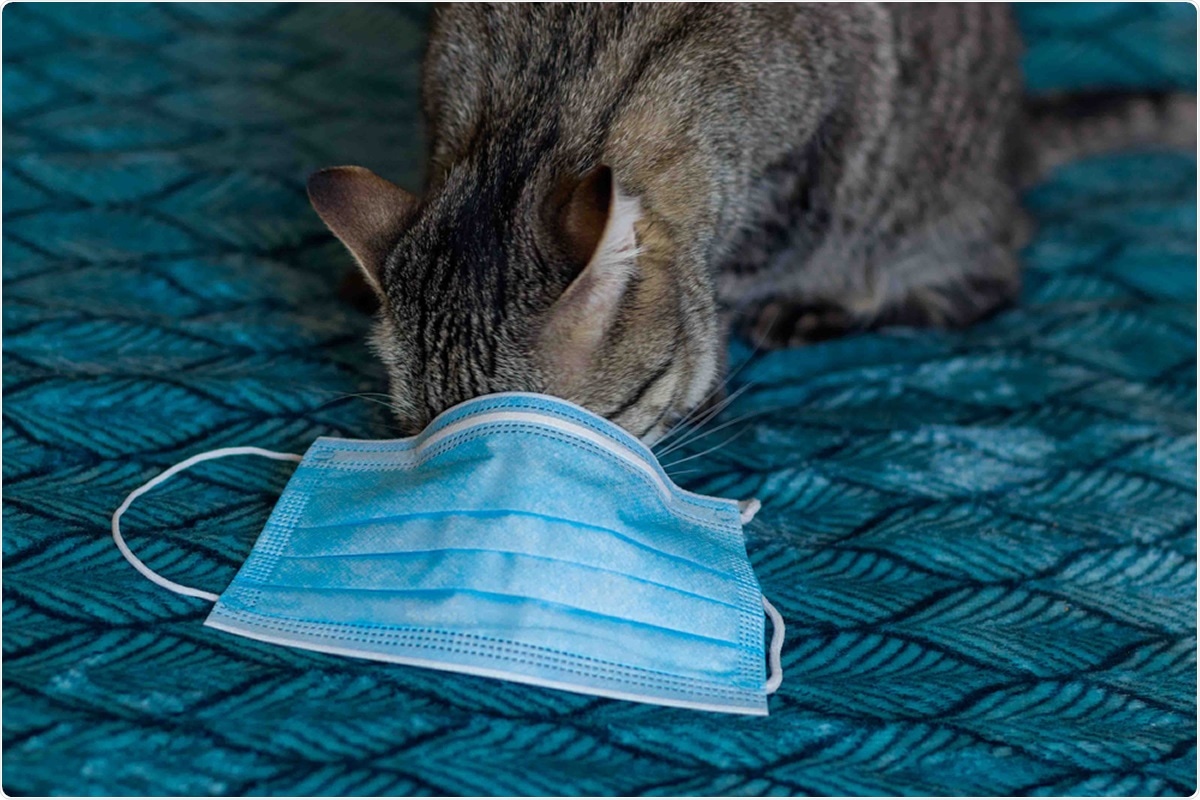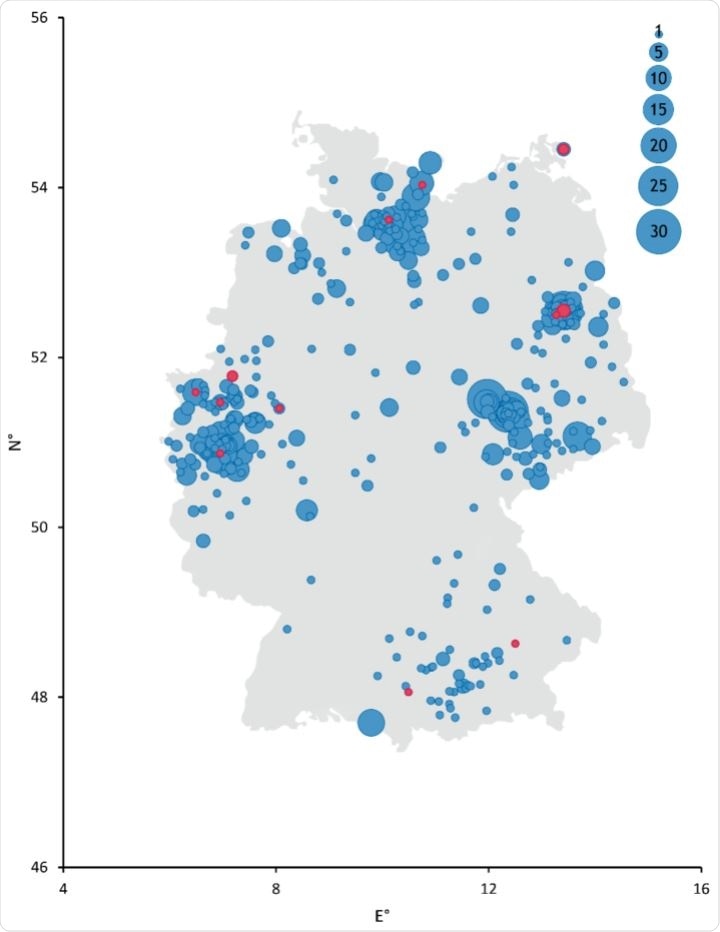Along with humans, dogs and cats have tested positive for COVID-19 (coronavirus disease 2019). In spite of this, we don't know for certain whether pets are involved in the transmission of the severe acute respiratory syndrome coronavirus 2 (SARS-CoV-2). To date, SARS-CoV-2, the etiological agent of COVID-19 has infected over 173 million individuals and claimed over 3.72 million lives worldwide.
To monitor the occurrence of trans-species transmission, researchers from the Institute of Diagnostic Virology, Friedrich-Loeffler-Institut, Germany, conducted a survey of seroprevalence in domestic cats.
The researchers observed the seroprevalence in cats to higher than observed in a previous study. "A doubling of the seroprevalence in cats is in line with the rise of reported cases in the human population and indicates a continuous occurrence of trans-species transmission from infected owners to their cats," noted the researchers in their paper recently published in the journal, Viruses.

This study was conducted from September 2020 to February 2021 by collecting serum samples from domestic cats during clinical examinations by veterinarians. Using an indirect ELISA against the receptor-binding domain (RBD) of the viral Spike protein, the researchers tested 1,173 samples for antibodies. The results were further confirmed using an indirect immunofluorescence assay (iIFA).
The researchers chose the samples randomly for this study – without knowing the health status of the cats or the SARS-CoV-2 infection status of the owners. Thus, this study does not determine if the virus caused illness in the cats.
In Germany, human SARS-CoV-2 infections are registered by the Robert-Koch Institute (RKI), the German federal government agency responsible for disease control and prevention.
A previous sero-survey was conducted during the first wave of the pandemic, from February to March 2020. The researchers then detected antibodies against SARS-CoV-2 in 0.65% of the feline serum samples that were randomly sampled across Germany. This study showed that trans-species transmission from infected humans to their cats happened on a regular, though infrequent basis.
"Since the higher number of human infections might also lead to a higher risk in trans-species transmission, the collection of serum samples from domestic cats from all over Germany during the second wave of the pandemic was continued."
In the latest study, the researchers collected feline samples randomly across Germany during the second wave. The researchers hypothesized that as a higher number of humans were infected with SARS-CoV-2 during the second wave, more domestic cats may be infected too. They detected antibodies against SARS-CoV-2 in 1.36% (16 out of 1173) of feline serum samples that were randomly sampled.

The seroprevalence tested for the samples from the cat during the second wave of the COVID-19 pandemic is nearly twice as high as the prevalence during the first wave of the virus. The researchers inform, "For comparison, the amount of registered human infections rose from 289,189 cases at the end of September 2020 to 2,442,336 at the end of February 2021, which accounts for a more than eightfold increase of overall registered human cases in Germany during the second wave of the pandemic."
Specifically, the researchers observed that the highest rates were found in January (2.15%) and February (2.50%) 2021. This is right a month after detecting the virus doubling in the human population within one month.
They also noted that neutralizing antibodies were found in only a few of the animals infected with SARS-CoV-2.
Overall, it can be inferred from this study that the survey conducted during the second wave shows trans-species transmission happening from infected humans to cats regularly.
During such a pandemic period, this study throws important implications for the management of cats domestically owned by people, who may or may not be infected by SARS-CoV-2. This also emphasizes the need for further studies on the antibody kinetics and immune responses in cats.
The doubling of the seroprevalence detected in the domestic cat population follows the rise in registered cases of human SARS-CoV-2 infections but not to a degree where a rise in the occurrence rate of trans-species transmission can be concluded, the researchers write.
- Michelitsch, A.; Schön, J.; Hoffmann, D.; Beer, M.; Wernike, K. The Second Wave of SARS-CoV-2 Circulation—Antibody Detection in the Domestic Cat Population in Germany. Viruses 2021, 13, 1009. https://doi.org/10.3390/v13061009, https://www.mdpi.com/1999-4915/13/6/1009/htm
Posted in: Medical Science News | Medical Research News | Disease/Infection News
Tags: Antibodies, Antibody, Assay, Coronavirus, Coronavirus Disease COVID-19, Diagnostic, Pandemic, Protein, Receptor, Respiratory, SARS, SARS-CoV-2, Severe Acute Respiratory, Severe Acute Respiratory Syndrome, Spike Protein, Syndrome, Virology, Virus

Written by
Dr. Ramya Dwivedi
Ramya has a Ph.D. in Biotechnology from the National Chemical Laboratories (CSIR-NCL), in Pune. Her work consisted of functionalizing nanoparticles with different molecules of biological interest, studying the reaction system and establishing useful applications.
Source: Read Full Article
